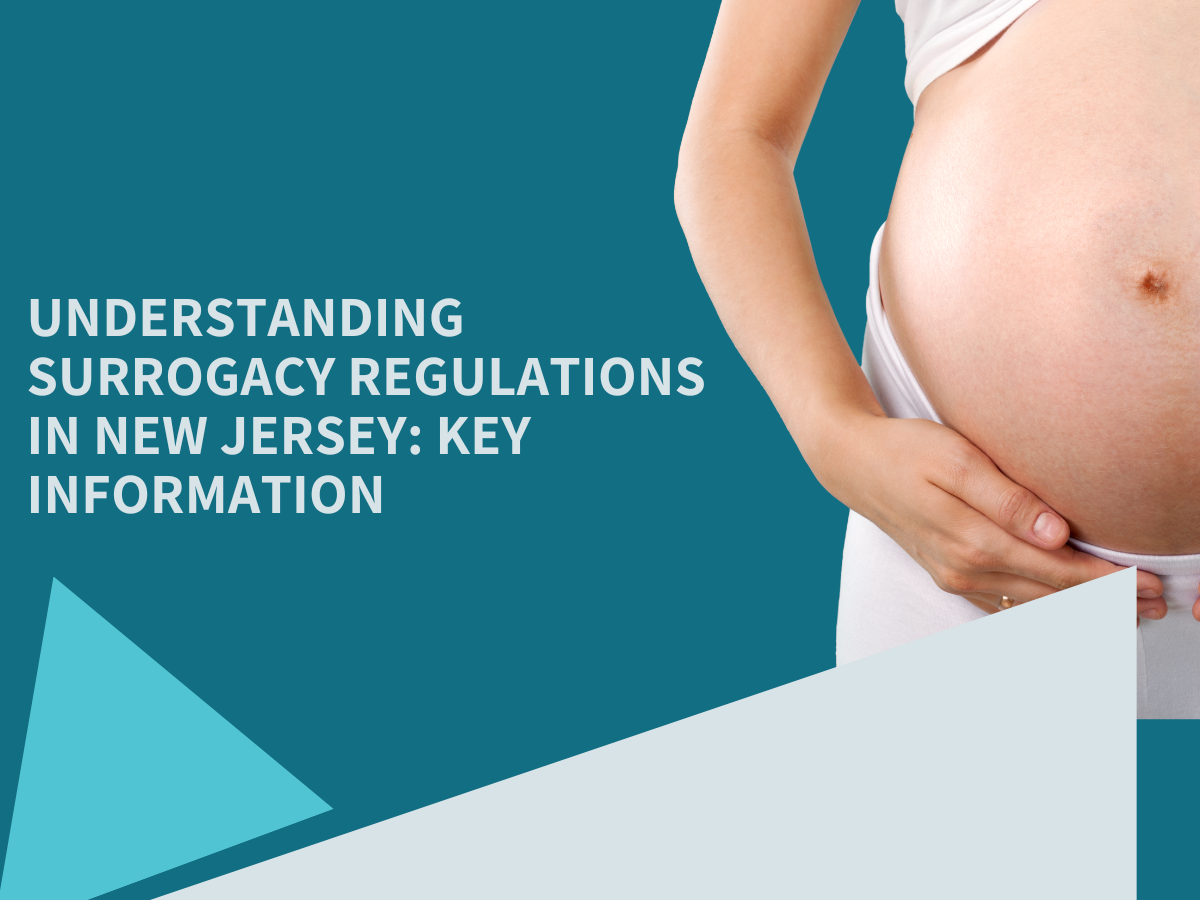Surrogacy is an arrangement where a woman (surrogate mother) agrees to carry and give birth to a child for another person or couple (intended parents). In New Jersey, surrogacy is legal and regulated by state laws. Here are some key facts and figures about surrogacy in New Jersey:
- Legal Status: Gestational surrogacy is legal and recognized in New Jersey. The state has specific laws governing surrogacy agreements, which are enforceable contracts.
- Types of Surrogacy: New Jersey allows both traditional surrogacy (where the surrogate mother is genetically related to the child) and gestational surrogacy (where the surrogate mother has no genetic link to the child).
- Surrogacy Requirements:
- The intended parents must be legally married, and at least one of them must be a U.S. citizen.
- The surrogate mother must be at least 21 years old and have previously given birth to at least one child.
- Compensation for the surrogate mother is allowed and is usually in the range of $25,000 to $35,000, plus additional expenses.
- Surrogacy Agencies: There are several surrogacy agencies operating in New Jersey that facilitate the surrogacy process, including matching intended parents with potential surrogates, coordinating legal contracts, and providing support throughout the process.
- Statistics: According to the Society for Assisted Reproductive Technology (SART), in 2019, there were 145 gestational surrogacy cycles performed in New Jersey, resulting in 75 live births.
To become a surrogate mother in New Jersey, here are the typical steps:
- Research and choose a surrogacy agency or fertility clinic to work with.
- Complete an application process, which typically involves medical screenings, psychological evaluations, and background checks.
- If approved, you will be matched with intended parents and enter into a legal surrogacy agreement.
- Undergo fertility treatments, such as in vitro fertilization (IVF), to become pregnant with the intended parents’ embryo.
- Carry the pregnancy and give birth, after which the child will be legally transferred to the intended parents.
The key laws and regulations governing surrogacy in New Jersey:
- New Jersey Gestational Carrier Agreement Act (N.J.S.A. 9:17-60 to 9:17-67):
- This law, enacted in 2018, outlines the requirements for enforceable gestational carrier agreements in New Jersey.
- It defines gestational carrier as a woman who is not an intended parent and who agrees to become pregnant through assisted reproduction.
- The intended parents must be legally married, and at least one of them must be a U.S. citizen.
- The gestational carrier must be at least 21 years old and have previously given birth to at least one child.
- The agreement must be in writing and approved by the court before the gestational carrier becomes pregnant.
- The gestational carrier’s spouse, if married, must also consent to the agreement.
- The law prohibits traditional surrogacy (where the surrogate is genetically related to the child) unless approved by the court.
- Parentage Act (N.J.S.A. 9:17-58 to 9:17-59):
- This law establishes the legal parentage of children born through gestational surrogacy.
- Upon birth, the intended parents become the legal parents of the child, and the gestational carrier has no parental rights or obligations.
- The intended parents’ names are placed on the child’s birth certificate.
- New Jersey Insurance Law (N.J.S.A. 17:48-6x and N.J.S.A. 17:48A-7w):
- These laws require health insurance companies to cover gestational carrier agreements, including costs related to in vitro fertilization (IVF), embryo transfer, and associated procedures.
- The intended parents’ insurance must cover these costs, not the gestational carrier’s insurance.
- New Jersey Surrogacy Agency Regulation (N.J.A.C. 8:48I):
- These regulations establish standards for surrogacy agencies operating in New Jersey.
- Agencies must be licensed by the Department of Health and meet specific requirements related to screening, matching, and support services.





